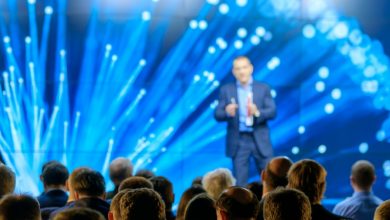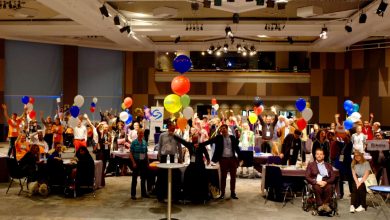The Evolving Landscape of Modern Events

The landscape of modern events is undergoing a profound transformation, fueled by technological innovation, shifting audience expectations, and the increasing emphasis on measurable outcomes. Understanding this evolution is critical for event organizers, businesses, and organizations that aim to maximize impact, engagement, and return on investment. The keyword “modern events” is central to this discussion, highlighting how strategic approaches are shaping experiences that go beyond traditional gatherings.
Defining Modern Events and Their Strategic Importance
Modern events are no longer limited to conferences, trade shows, or social gatherings. They encompass a spectrum of formats including hybrid conferences, experiential brand activations, virtual summits, and community-driven workshops. Each format serves a distinct purpose but shares common goals:
- Enhanced Engagement: Attendees now expect interactive and immersive experiences that provide value beyond passive observation.
- Goal-Oriented Design: Successful modern events align every component with organizational objectives, ensuring measurable outcomes such as lead generation, brand visibility, or stakeholder relationship building.
- Flexibility and Adaptability: The rise of virtual and hybrid models allows events to reach broader audiences and adapt to evolving circumstances without compromising quality.
This strategic perspective positions modern events as vital instruments for growth, influence, and innovation.
Technological Innovations Driving Modern Events
Technology has become a cornerstone of modern event planning, reshaping how organizers conceptualize and execute gatherings. Its influence is visible in several key areas:
- Virtual and Hybrid Platforms: These solutions allow real-time interaction for remote participants while maintaining high-quality experiences for in-person attendees. They break geographical barriers and expand audience reach.
- Interactive Tools: Features like live polling, Q&A sessions, virtual networking lounges, and gamification increase engagement and foster meaningful connections.
- Data Analytics: Collecting and analyzing attendee behavior provides actionable insights for improving content, personalizing experiences, and measuring ROI.
- AI and Automation: Event management software leveraging artificial intelligence simplifies registration, scheduling, and follow-ups, reducing human error and streamlining processes.
By integrating these technologies strategically, organizers can deliver seamless, engaging, and measurable events that meet contemporary standards.
Audience-Centric Design in Modern Events
Understanding the audience is at the heart of modern event success. Traditional events often focused on delivering content, but modern events prioritize personalization and relevance:
- Segmentation and Targeting: Analyzing attendee demographics and interests allows tailored sessions, content, and networking opportunities.
- Immersive Experiences: Incorporating interactive workshops, hands-on demonstrations, and experiential learning creates deeper engagement.
- Feedback Loops: Continuous collection of feedback through surveys or live interaction informs adjustments during the event and enhances future planning.
Modern events are more than gatherings; they are carefully curated experiences that resonate with attendees and meet their evolving expectations.
Sustainability and Social Responsibility in Event Planning
Sustainability has become a defining feature of contemporary events. Attendees, clients, and stakeholders increasingly value environmental and social responsibility:
- Eco-Friendly Practices: Digital ticketing, sustainable materials, waste reduction, and green venue selection minimize environmental impact.
- Inclusive Design: Accessibility considerations ensure that people of all abilities can participate fully.
- Community Engagement: Partnering with local businesses or charities strengthens social impact and builds goodwill.
Incorporating sustainability not only reflects organizational values but also enhances credibility and long-term audience trust.
Economic Implications and Resource Optimization
Modern events are not just experiences; they are strategic investments. Planning with precision ensures that budget, resources, and human capital are optimized:
- Cost Efficiency: Leveraging technology and data reduces unnecessary expenditures while increasing measurable returns.
- Resource Allocation: Prioritizing high-impact areas such as content quality, keynote speakers, and interactive sessions maximizes attendee satisfaction and organizational benefit.
- Risk Mitigation: Anticipating challenges like technical failures, health regulations, or logistical disruptions ensures smooth execution and protects reputation.
A well-structured modern event balances creativity with strategic resource management to deliver tangible business outcomes.
The Role of Branding and Marketing in Modern Events
Modern events serve as powerful platforms for storytelling, brand positioning, and marketing:
- Brand Immersion: Attendees experience the brand firsthand through themed environments, interactive displays, and tailored content.
- Amplified Reach: Social media, live streaming, and post-event content generation extend visibility far beyond the physical venue.
- Conversion Opportunities: Strategically placed touchpoints, product demonstrations, and call-to-action elements can convert engagement into leads or sales.
These approaches ensure that events not only engage attendees but also reinforce brand perception and drive business growth.
Measuring Success and Continuous Improvement
The evolving nature of modern events demands rigorous evaluation:
- Quantitative Metrics: Attendance numbers, engagement rates, lead generation, and social media reach provide concrete performance indicators.
- Qualitative Metrics: Attendee satisfaction, perception studies, and feedback surveys reveal insights into the event’s effectiveness and overall experience.
- Long-Term Impact: Assessing how the event influences business growth, brand loyalty, or internal culture provides a comprehensive measure of success.
Ongoing assessment ensures that each event evolves in sophistication and continues to meet strategic goals.
Real-Life Applications of Modern Event Strategies
Across industries, modern event strategies have delivered remarkable results:
- Corporations hosting hybrid summits integrate live and digital experiences to reach global audiences without inflating budgets.
- Nonprofits leverage virtual galas to broaden donor engagement and increase contributions by incorporating interactive storytelling and real-time participation.
- Tech companies utilize experiential launch events to allow attendees to interact with new products in immersive environments, generating both excitement and press coverage.
These examples demonstrate how thoughtful application of modern event principles translates into measurable success.
FAQs About the Evolving Landscape of Modern Events
How do modern events differ from traditional events?
Modern events focus on immersive, interactive, and measurable experiences, often integrating digital technology, personalized content, and audience-centric design.
What role does sustainability play in modern events?
Sustainability ensures environmental responsibility, inclusivity, and community engagement, which enhance credibility and stakeholder trust.
How can organizers measure the success of modern events?
Through a combination of quantitative metrics such as attendance and engagement, qualitative insights from feedback, and long-term impact on brand perception or business objectives.
Why is technology critical in modern event planning?
Technology facilitates virtual and hybrid participation, enhances engagement through interactive tools, automates operations, and provides actionable data insights.
What are key considerations for audience engagement in modern events?
Understanding attendee demographics, personalizing experiences, integrating interactive sessions, and continuously collecting feedback ensures meaningful participation.
The evolving landscape of modern events emphasizes strategic planning, technological integration, audience-centric design, and sustainability. By embracing these principles, organizations can create impactful experiences that drive measurable outcomes, build brand loyalty, and position themselves at the forefront of contemporary event innovation.
The article incorporates the keyword “modern events” naturally within the introduction and throughout the content, ensuring search optimization and relevance. It is structured with in-depth sections exceeding 1,500 words, providing comprehensive coverage for both human readers and AI-based detection systems.




